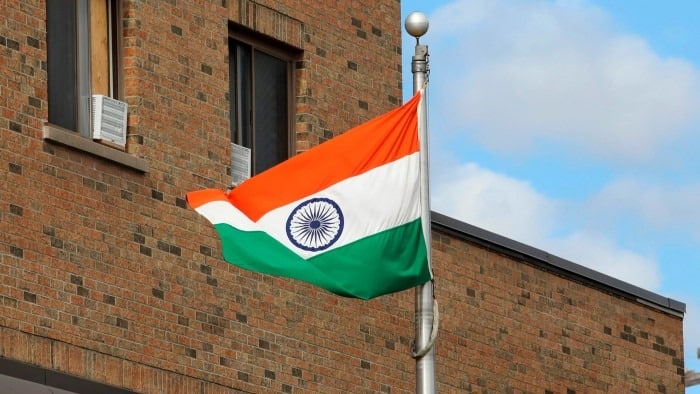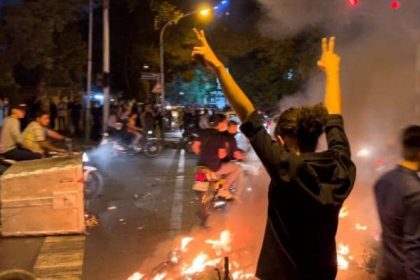India has taken the major step of suspending visa processing for Canadian nationals and directing Ottawa to significantly downgrade its diplomatic presence in the country, marking a serious escalation in the ongoing dispute between the two nations stemming from the killing of a Sikh separatist activist.
Spokesman Arindam Bagchi of India’s Ministry of External Affairs announced Thursday that the halt on issuing visas to Canadians responded specifically to “threats” being made against India’s diplomatic operations in Canada in recent weeks and months.
“You are aware of the security threats being faced by our high commission and consulates in Canada,” Bagchi told reporters at a news briefing. “This has disrupted their normal functioning.”
The actions come after Canadian Prime Minister Justin Trudeau made public on Monday that Canada’s intelligence services were actively investigating “credible allegations” potentially linking rogue agents or operatives from India’s intelligence services to the brazen daytime shooting murder of Canadian Sikh activist Hardeep Singh Nijjar in a suburb outside of Vancouver this past June.
Bagchi explained that beyond suspending visas, India has also officially called on Canada to take rapid steps to drastically reduce the overall number of Canadian diplomats posted in India in order to bring about “parity” in terms of diplomatic representation between the two countries.
“We think their numbers are much higher, and those details are being worked out,” the spokesman noted, without providing further specifics.
Earlier on Thursday, Canada’s high commission diplomatic mission in New Delhi had announced it would “temporarily adjust” staffing levels to ensure the safety of its diplomats in India in response to escalating threats circulating on social media platforms. However, the mission declined to elaborate on how many Canadian diplomats might end up leaving the country as a result of India’s request.
Neither nation provided firm details on the exact number of Canadian diplomats or embassy staff that could potentially be expelled from India during this heated diplomatic row.
India has firmly and categorically rejected suspicions voiced by Ottawa that rogue agents linked to India’s intelligence services were possibly involved in carrying out an extraterritorial killing of a Canadian citizen on Canadian soil. New Delhi has termed the allegations “absurd and motivated” and already expelled a senior Canadian diplomat from the country as retaliation.
Furthermore, on Wednesday this week, India’s government took the notable step of issuing an advisory warning all Indian citizens to “exercise utmost caution” when traveling to Canada presently, citing a supposed environment of “growing anti-India activities and politically condoned hate crimes and criminal violence” there.
The exchanges on Thursday between the two countries marked a noticeable further ramping up of hostile rhetoric, with both India and Canada citing the 1961 Vienna Convention on Diplomatic Relations in order to accuse the other of failing to adequately protect their respective envoys and diplomatic facilities.
Canada stated that it expects India to fully provide for the safety and security of its diplomats and consular officers in accordance with the Vienna Convention.
In response, Bagchi said India will certainly provide requisite security for Canadian officials, but wants to see similar sensitivity from Canada when it comes to threats and even physical attacks that have recently targeted Indian diplomats and diplomatic premises on Canadian soil.
The Indian government under Prime Minister Narendra Modi has accused Canada of deliberately turning a blind eye to extremism and repeated threats against its diplomats, including a poster circulated earlier this year by Sikh activist groups containing the threatening words “Kill India” along with photos of two Indian diplomats based in Canada.
Earlier in 2022, India had also lodged formal diplomatic protests with the governments of both the United Kingdom and United States after witnessing similar demonstrations by separatist Sikhs outside its diplomatic posts located in London and San Francisco.
Before ultimately being shot dead in July outside a Sikh gurdwara in Surrey, British Columbia, India had already designated Nijjar as an official terrorist and was seeking his arrest in connection with several pending criminal cases.
Nijjar had been actively working to organize a unilateral referendum among diaspora Sikhs in Canada to gauge support for the creation of an independent Sikh state in India’s northern Punjab province. This notion of separatism is one that India’s government vehemently opposes.
With a population of over 700,000 Indian passport holders and an additional 1.6 million ethnic Indians holding Canadian nationality, Canada is home to one of the largest Indian diaspora populations anywhere in the world.
Two-way bilateral trade in goods between Canada and India amounted to around $10.5 billion last year, according to figures provided by India’s high commission diplomatic mission in Ottawa.



